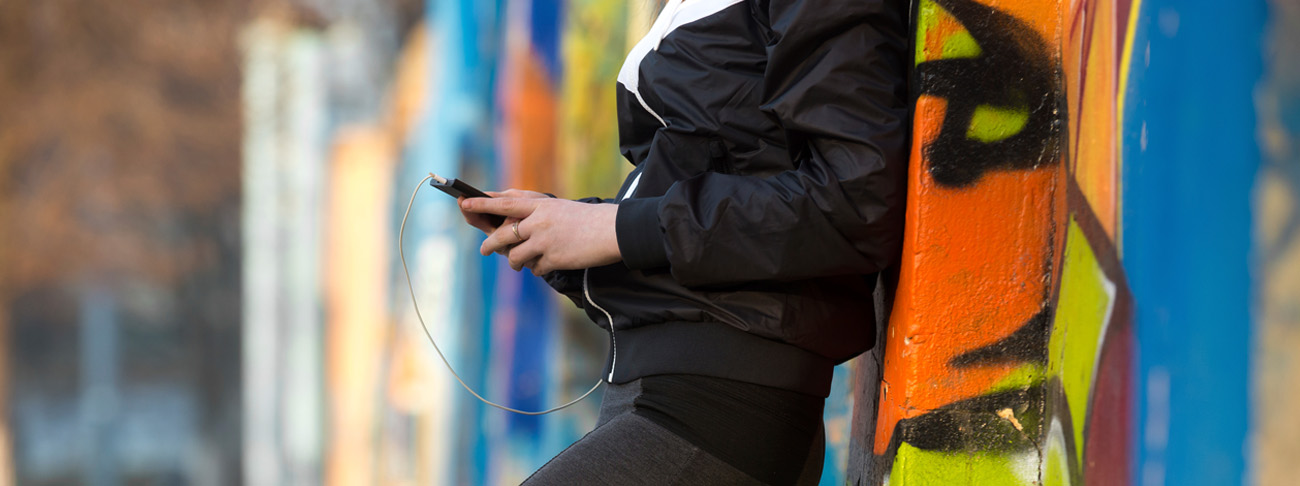
Guidance on the use of social media for those working with young people
Many people enjoy membership of social networking sites such as Facebook, YouTube, Instagram, Snapchat, and Twitter, etc. Social media provides unique opportunities for sports organisations to engage, connect, and develop unique relationships with people in a creative and dynamic medium where users are active participants. Information about an event or campaign messages can be communicated virally amongst supporters within online communities. However we must also be aware that these sites can be used as a negative forum for complaining, gossiping, or bullying. Care must be taken not to breach your club/organisations Code of Conduct or the Data Protection Acts.
Principles
- If you are representing your sport or club in an official capacity, it is important that your posts convey the same positive spirit that your club/sport would instill in all of its communications. Be respectful of all individuals, races, religions, sexuality and cultures. How you conduct yourself online not only reflects on you; it also reflects directly on your sport/club.
- When disagreeing with the opinions of others online, keep it appropriate and polite. If you find yourself in a situation that might become antagonistic, do not get defensive or disengage from the conversation abruptly. It is also important not to respond in the heat of the moment in a way you may regret later. Feel free to seek advice or disengage from the dialogue in a polite manner that reflects well on your sport/club.
The risks
With all emerging technologies there is also the potential for misuse. Risks associated with user interactive services include: online bullying, entrapment (grooming) of young people and potential abuse by online predators, identity theft, and exposure to inappropriate content includes self-harm, racism, sexting (which is the creation or uploading of inappropriate sexual material) and exposure to adult pornography. The Byron Review sets out the risks to children posed by the Internet and illustrated by following the grid below.
| Commercial | Aggressive | Sexual | Values | |
| Content (child as recipient) | Adverts Spam Sponsorship Personal Info |
Violent/hateful content | Pornographic or unwelcome sexual content | Bias Racist Misleading Info |
| Contact (child as participant) | Tracking Harvesting personal info |
Being bullied, harassed or stalked | Meeting strangers Being groomed |
Self-harm Unwelcome persuasions |
| Conduct(child as actor) | Illegal downloading Hacking Gambling Financial scams Terrorism |
Bullying or harassing another | 'Sexting’ - Creating and uploading inappropriate material | Providing misleading info/advice |
The capabilities of social networking services may increase the potential for sexual exploitation of children and young people. There have been a number of well-reported cases where adults have used social networking and user interactive services as a means of contacting children and young people for sexual abuse. Online entrapment techniques include:
- gathering personal details, such as age, name, address, mobile number, name of school and photographs
- promising meetings with sports idols or celebrities or offers of merchandise
- offering cheap tickets to sporting or music events
- offering material gifts including electronic games, music or software
- paying young people to appear naked and perform sexual acts
- bullying and intimidating behaviour, such as threatening to expose the child by contacting their parents to inform them of their child’s communications or postings on a social networking site, and/or saying they know where the child lives, plays sport, or goes to school
- asking sexually-themed questions, such as ‘Do you have a boyfriend?’ or ‘Are you a virgin?
- asking to meet children and young people offline
- sending sexually themed images to a child, depicting adult content or the abuse of other children
- masquerading as a minor or assuming a false identity on a social networking site to deceive a child
- using school or hobby sites (including sports) to gather information about a child’s interests likes and dislikes. Most social networking sites set a child’s webpage/profile to private by default to reduce the risk of personal information being shared in a public area of the site.
Easy Rules to Remember
If someone has their own personal profile on a social media website, they should make sure that others cannot access any content, media, or information from that profile that:
- they are not happy for others to have access to; and/or
- which would undermine their position as sports coach/volunteer representing their organisation/club
As a basic rule, if you are not happy with others seeing particular comments, media or information, then simply do not post these materials on a public forum site. When using social media sites the following should be considered:
- Change your privacy setting on the profile so that only people you have accepted as friends can see your comments. Individuals should lock down their page to non-friend
- Review who is on your ‘friends list’ on your personal profile. In most situations you should not accept ‘friends requests’ if you do not actually know the person(s) concerned
- Ensure personal blogs have clear disclaimers that the views expressed are personal and not representative of a particular Club or sport
- Ensure that information published on social media sites complies with the club/organisations Code of Conduct
- Beware of how your actions could be captured via images, posts or comments online as these will reflect on the sport or your Club
- Respond to online bullying - what is said online should be treated as if said in real time
- Those in authority should not have under 18’s they coach as their friends on facebook and do not comment on individual players you are coaching through your personal page.
- Change your privacy setting on the profile so that only people you have accepted as friends can see your comments. Individuals should lock down their page to non-friends
- Review who is on your ‘friends list’ on your personal profile. In most situations you should not accept ‘friends requests’ if you do not actually know the person(s) concerned
- Ensure personal blogs have clear disclaimers that the views expressed are personal and not representative of a particular Club or sport
- Ensure that information published on social media sites complies with the club/organisations Code of Conduct
- Beware of how your actions could be captured via images, posts or comments online as these will reflect on the sport or your Club
- Respond to online bullying - what is said online should be treated as if said in real time
- Those in authority should not have under 18’s they coach as their friends on facebook and do not comment on individual players you are coaching through your personal page.
O2 & NSPCC | Online Safety Partnership
